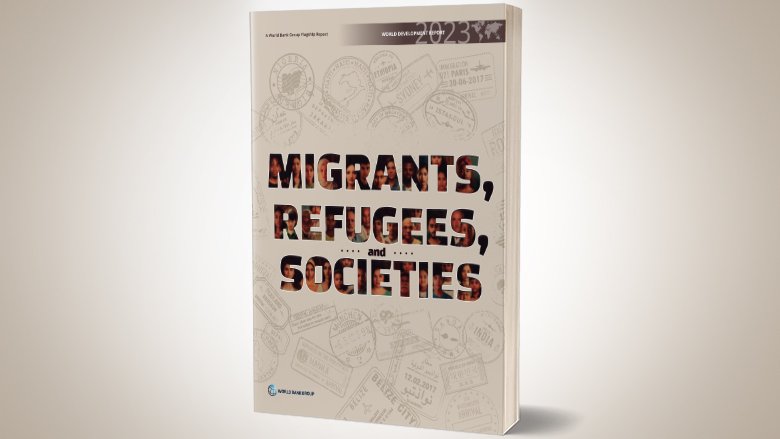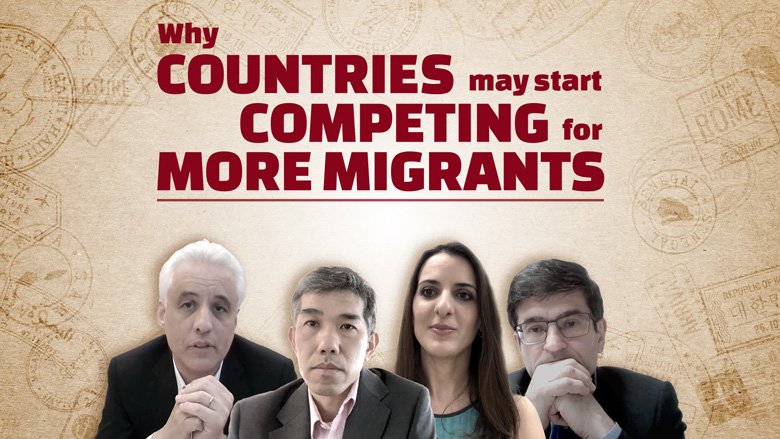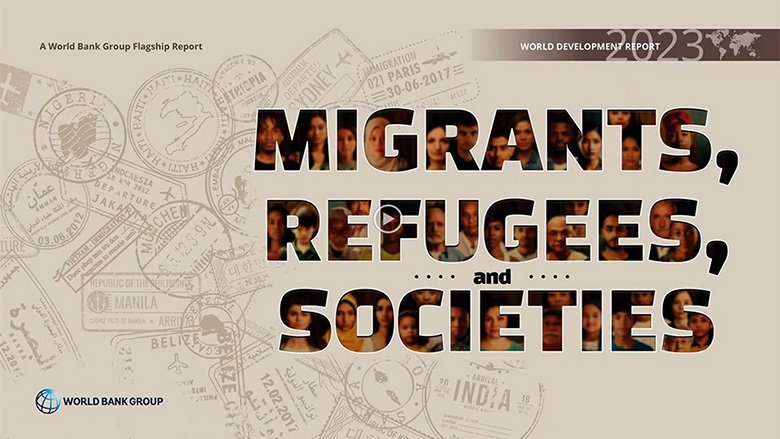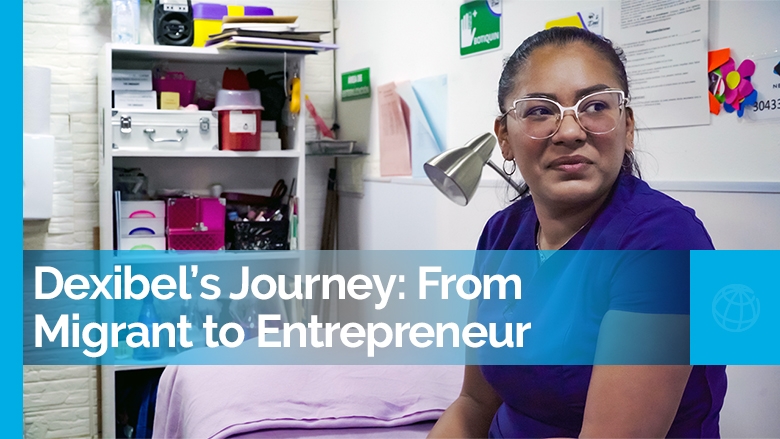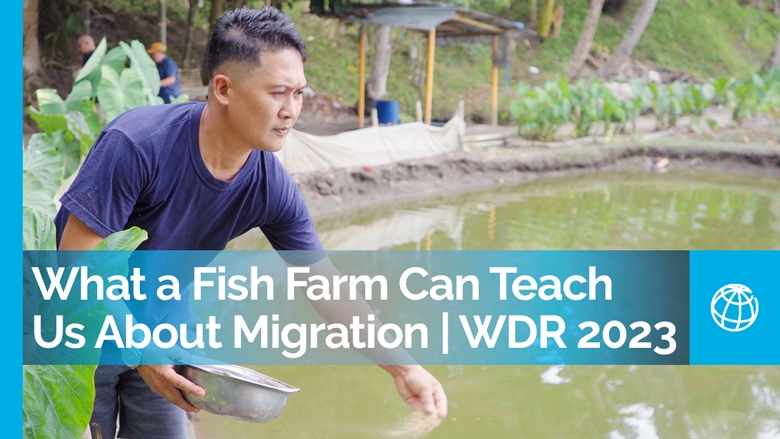MODULE DESCRIPTION
Climate change is an increasingly potent driver of migration across regions and countries. Climate change impacts will hit the poorest and most vulnerable regions the hardest and threaten to reverse development gains. In some places, questions of habitability will arise. Climate impacts often compound vulnerabilities such as poverty, fragility, and conflict. This module provides an understanding of how climate change impacts are already affecting and may affect trends, scales, and patterns of migration patterns in the coming decades. For practitioners and researchers working at the nexus of climate, migration, and development, such an understanding is essential to better inform policy and planning.
LEARNING OBJECTIVES
Upon completion of this module, participants should be able to:
- Be familiar with the current state knowledge on how climate change is set to shape migration trends and patterns.
- Have insight into how policy frameworks currently address mobility in the context of climate change and their evolution.
- Understand of how scenario-based and spatial approaches are useful tools for understanding climate-related mobility.
- Gain insight into how climate impacts compound with other factors of vulnerability in potential ¡°hotspots¡± of climate migration through case studies.
- Think through policy domains that can help address climate-related mobility and inform development planning.
AGENDA AND OUTLINE OF LECTURES
The module will consist of 7 two-hour lectures over 2¨C2 ? days.
Lecture 1: Climate Change, Mobility, and Development: A Growing Nexus
This lecture will provide an overview of the latest climate science and the implications of climate change for sustainable development. It will introduce how both sudden-onset and slow-onset climate impacts can act on livelihood productivity and the habitability of places to drive climate-related mobility, often compounding other factors.
Mandatory reading:
- 2023 WDR ¡°¡±, Chapter 3. The Outlook: Changing Patterns, Needs, and Risks
Additional reading:
- [H.-O. P?rtner, D.C. Roberts, E.S. Poloczanska, K. Mintenbeck, M. Tignor, A. Alegr¨ªa, M. Craig, S. Langsdorf, S. L?schke, V. M?ller, A. Okem (eds.)]. In: Climate Change 2022: Impacts, Adaptation, and Vulnerability. Contribution of Working Group II to the Sixth Assessment Report of the Intergovernmental Panel on Climate Change [H.-O. P?rtner, D.C. Roberts, M. Tignor, E.S. Poloczanska, K. Mintenbeck, A. Alegr¨ªa, M. Craig, S. Langsdorf, S. L?schke, V. M?ller, A. Okem, B. Rama (eds.)]. Cambridge University Press, Cambridge, UK and New York, NY, USA, pp. 3-33, doi:10.1017/9781009325844.001.
- World Bank Group. 2023. . Washington, DC: World Bank.
Lecture 2: Climate-Related Mobility: Trends, Scales, and Patterns
This lecture will discuss the state of play of how climate impacts are already and will continue shifting patterns of mobility from internal displacement to internal migration, as well as international migration, by distilling the evidence base on a growing body of literature. It will touch on how climate change also affects the characteristics of who migrates, their skills, and human capital. It will also highlight how mobility can be an important existing adaptation strategy for people facing adverse environmental and climate conditions.
Mandatory reading:
- Rigaud, Kanta Kumari; de Sherbinin, Alex; Jones, Bryan; Bergmann, Jonas; Clement, Viviane; Ober, Kayly; Schewe, Jacob; Adamo, Susana; McCusker, Brent; Heuser, Silke; Midgley, Amelia. 2018. . ? World Bank, Washington, DC. Chapter 2. Understanding the Climate Change¨CMigration Nexus.
Additional reading:
- Internal Displacement Monitoring Center .
- Hoffmann, Roman, Anna Dimitrova, Raya Muttarak, Jesus Crespo Cuaresma, and Jonas Peisker. 2020. ¡°¡± Nature Climate Change 10 (10): 904¨C12.
- ?edov¨¢, Barbora, Lucia ?izmaziov¨¢, and Athene Cook. 2021. ¡°¡± CEPA Discussion Paper No. 29. Center for Economic Policy Analysis, University of Potsdam.
Lecture 3: Understanding Climate-Related Mobility
This lecture will provide participants with an understanding of approaches and tools to better understand climate-related mobility trends and patterns to inform policy and planning. The lecture will use the key results from the World Bank¡¯s and its scenarios on internal climate migration scales, trends and patterns. It will help participants understand how unfolding climate impacts are set to alter the attractiveness of livelihood and resource conditions in rural, coastal, and urban systems across regions and shape potential hotspots of climate in- and out-migration.
Mandatory reading:
- Clement, Viviane; Rigaud, Kanta Kumari; de Sherbinin, Alex; Jones, Bryan; Adamo, Susana; Schewe, Jacob; Sadiq, Nian; Shabahat, Elham. 2021. . ? World Bank, Washington, DC. Overview.
Additional reading:
- Clement, Viviane; Rigaud, Kanta Kumari; de Sherbinin, Alex; Jones, Bryan; Adamo, Susana; Schewe, Jacob; Sadiq, Nian; Shabahat, Elham. 2021. . ? World Bank, Washington, DC. Chapter 1 ¨C Section 1.4 The Groundswell Approach: Understanding Climate Migration to Support Better Development Outcomes.
Lecture 4: Hands-On Case Study
In this lecture, participants will have the opportunity to work on a country case study of interest to gain further understanding of drivers, channels, and patterns of climate-related mobility. Participants will analyze expected climate impacts using readily available climate data, as well climate in- and out-migration hotspots for the country of interest. Participants will produce narratives to explain potential patterns of climate-related mobility and be able to relate these to other demographic, development, and contextual factors (perhaps linking with work done as part of other modules in this learning series). Participants will gain insight into how to construct a layered understanding of climate-related mobility patterns, including information needs.
Mandatory reading:
- Rigaud, Kanta Kumari; de Sherbinin, Alex; Jones, Bryan; Bergmann, Jonas; Clement, Viviane; Ober, Kayly; Schewe, Jacob; Adamo, Susana; McCusker, Brent; Heuser, Silke; Midgley, Amelia. 2018. . ? World Bank, Washington, DC. Chapter 5. Placing Climate Migration in the Development Context for Ethiopia, Bangladesh, and Mexico.
- Clement, Viviane; Rigaud, Kanta Kumari; de Sherbinin, Alex; Jones, Bryan; Adamo, Susana; Schewe, Jacob; Sadiq, Nian; Shabahat, Elham. 2021. . ? World Bank, Washington, DC. Chapter 3 ¨C Country Perspectives: Climate Migration in Morocco, Vietnam, and the Kyrgyz Republic
- World Bank
Additional reading:
- Rigaud, Kanta Kumari; de Sherbinin, Alex; Jones, Bryan; Adamo, Susana; Maleki, David; Abu-Ata, Nathalie E.; Casals Fernandez, Anna Taeko; Arora, Anmol; Chai-Onn, Tricia; Mills, Briar. 2021. . ? World Bank, Washington, DC.
- Rigaud, Kanta Kumari; de Sherbinin, Alex; Jones, Bryan; Adamo, Susana; Maleki, David; Arora, Anmol; Casals Fernandez, Anna Taeko; Chai-Onn, Tricia; Mills, Briar. 2021. . ? World Bank, Washington, DC.
Lecture 5: Actionable Development Responses to Address Climate-Related Mobility
The extent to which climate change continues to drive mobility will largely depend on the policies adopted and implemented today at both global and the national levels. This lecture will provide an overview of policy options that address underlying drivers of climate-related mobility, enable climate migration as an adaptation strategy, and embed migration in climate-resilient development policies and planning. Participants will have the occasion to consider policy options in light of the case study analyzed in the previous lecture, relating back to national development frameworks.
Mandatory reading:
- Rigaud, Kanta Kumari; de Sherbinin, Alex; Jones, Bryan; Adamo, Susana; Maleki, David; Abu-Ata, Nathalie E.; Casals Fernandez, Anna Taeko; Arora, Anmol; Chai-Onn, Tricia; Mills, Briar. 2021. . ? World Bank, Washington, DC. Chapter 6 - Strategic Response Framework to Mainstream Climate Migration into Development Planning.
Lecture 6: Mobility and Climate Change in Policy Frameworks
This lecture will provide an overview of how mobility and climate change are integrated in international, regional, and national policy frameworks, and highlight recent dialogue in this space. It will provide examples of international frameworks that are starting to address mobility in the context of climate change, along with examples of regional and national frameworks. It will reflect on the need for a comprehensive approach that reflects the necessary and the distressed nature of some climate-related movement.
Mandatory reading:
- Clement, Viviane; Rigaud, Kanta Kumari; de Sherbinin, Alex; Jones, Bryan; Adamo, Susana; Schewe, Jacob; Sadiq, Nian; Shabahat, Elham. 2021. . ? World Bank, Washington, DC. Chapter 1. An Evolving Global Landscape for Climate Change as a Driver of Migration.
Additional reading:
- Freestone, David; ?i?ek, Duygu. 2023. . ? Washington, DC: World Bank.
- UNHCR. 2023. .


